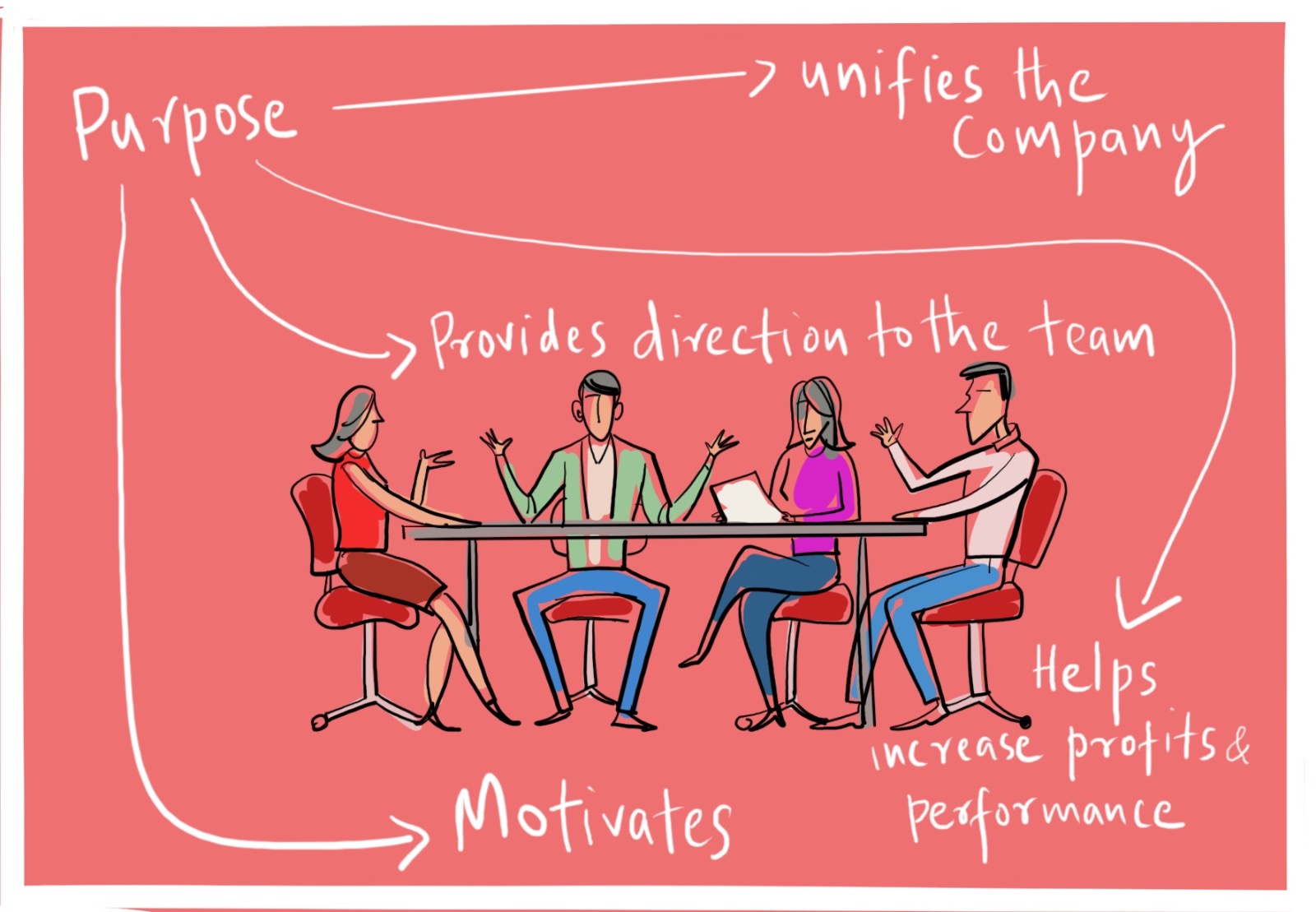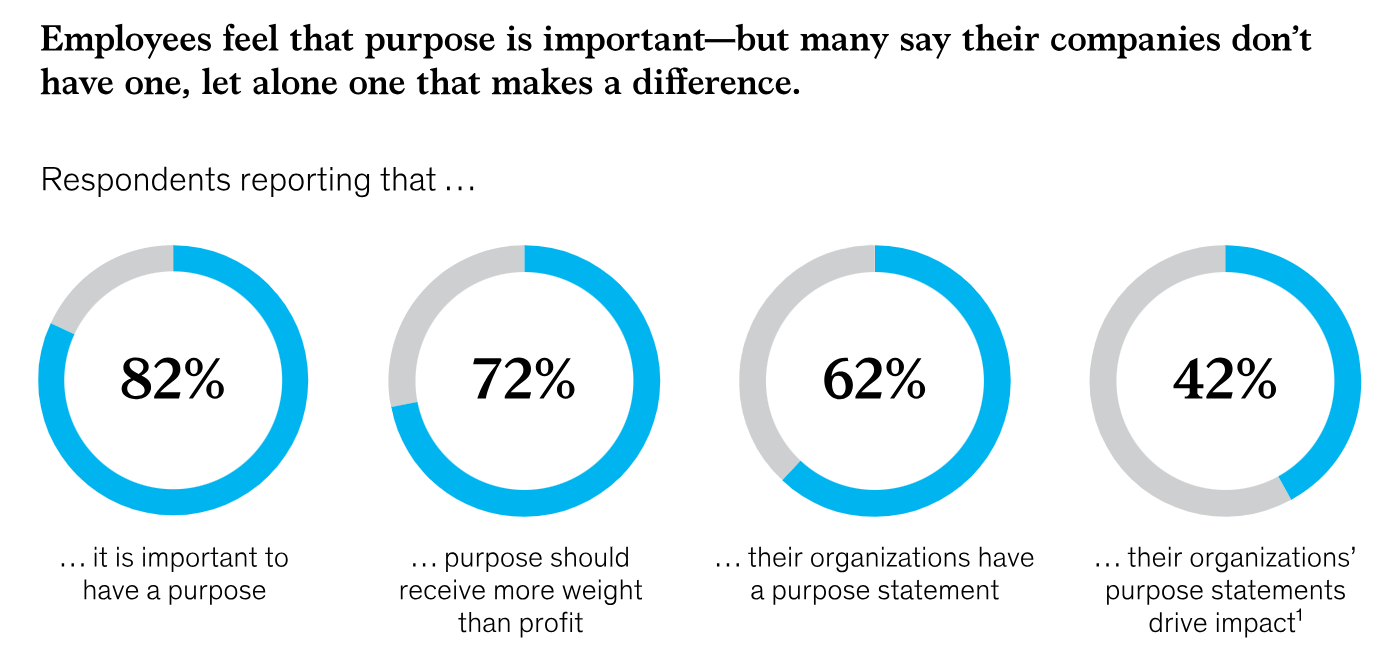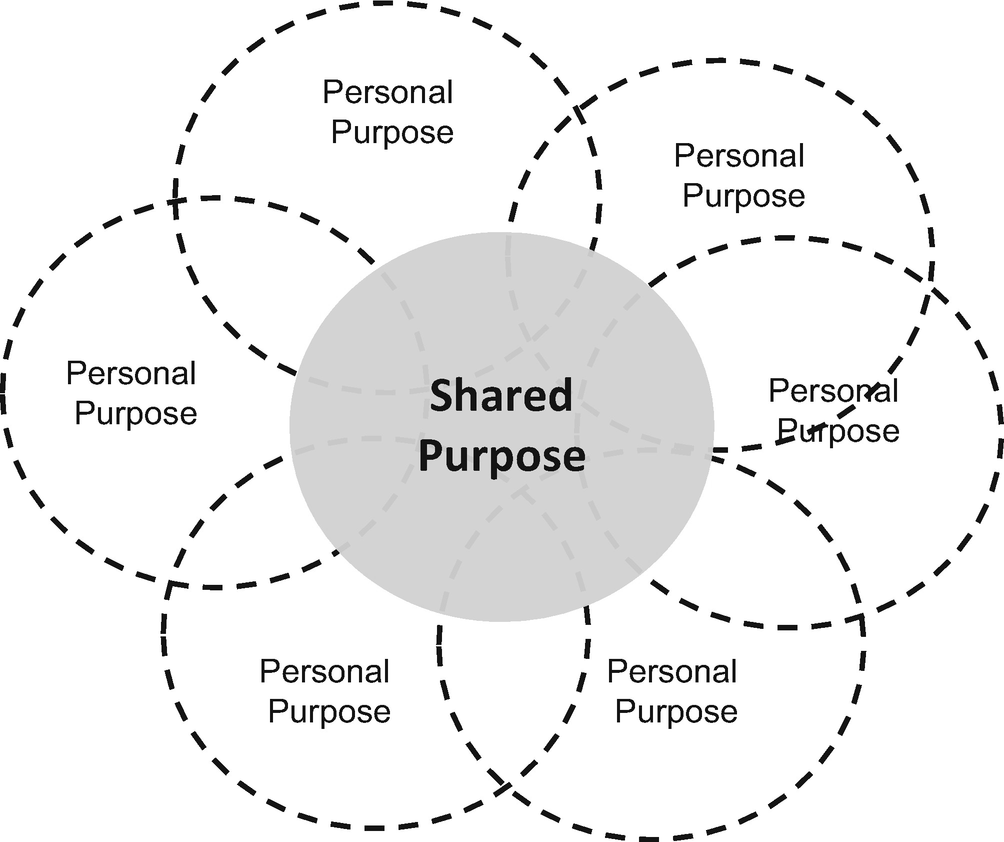
Have you wondered why there is an increased focus on purpose? Both organisational and individual purpose are being discussed and explored far more. Purpose and related phrases started appearing more frequently in 1980’s. The rate of increase since 2000’s has become exponential. What trends are causing this increased attention towards organisational purpose? What problems does organisational purpose solve? We turned to both the macro environment and research to answer the question – What does purpose do? Let us explore more in this edition of the series on organisational purpose.
Macro trends impacting the demand for organisational purpose:
We scouted the horizon for different macros trends to make sense of and are sharing a few here
1) Our trust in countries and governments have reduced so much, that business is the only institution seen as competent as ethical. This data point is from the 2023 Edleman Trust Barometer report. Organisations and CEOs are having to step up and improve economic optimism and accountability.
2) Employees are increasingly demotivated with just transactions. Suddenly even employees who have done well with performance/rewards, see their jobs as meaningless. Many data points corroborate this. The Great Reflection Wave by Gartner or the recent study by McKinsey.

3) Conflicting needs of different stakeholders. An organisational reality is some degree of conflicting needs from different stakeholders. However, data has shown that greater alignment between stakeholders about the organisation’s direction leads to better outcomes. A tenfold increase as compared to average performance on the stock exchange!
What does purpose do?
But does organisational purpose really solve these problems? Is the trust being placed on organisational purpose valid? We turned towards research to answer this. Here is what we found.

1) Purpose unifies:
Purpose helps bring together people from different backgrounds, mindsets, and experiences. Each of us have our own purpose of logging into work on a Monday morning. The organisational purpose helps created a shared reason (purpose) on why we work together.

Research : The new logic of purpose by Carlos Rey, Jon San Cristobal, Juan Almandoz
2) Purpose motivates
Being part of an organisation, which communicates and lives for a larger why, helps employees find meaning. This provides them a sense of identity. It helps them see how they are working towards a goal larger than a pay check. This sense of identity and clarity motivates employees to go the extra mile, and provide discretionary support.
3) Purpose directs
A clear purpose statement makes the direction crystal clear. One interviewee, a practitioner in marketing in the Van Ingen research coined the term “north star” for the directional and guiding aspect of purpose. By providing clarity, organisational purpose helps decision making at all levels of the organisation easier. It also builds accountability among leaders and employees. Van Ingen et al (2021)
4) Purpose Profits
Research shows that companies that prioritize purpose tend to outperform the market by 5%–7% annually. This is on par with companies that excel in governance and innovation.
5) Purpose builds trust
Purpose aligns with value creation and becomes a foundation for a moral contract between corporations and society. Clarity about a company’s purpose is crucial for trust-building and prosperity. Purpose driven organisations have the potential to restore trust in business organisations.
That is both an opportunity and a challenge. Organisational purpose can deliver on the above if we are purpose driven organisations. Rather than organisations with a purpose statement. The choice is ours to make. In the next few posts in this series on purpose we will explore how to embed and live organisational purpose.







